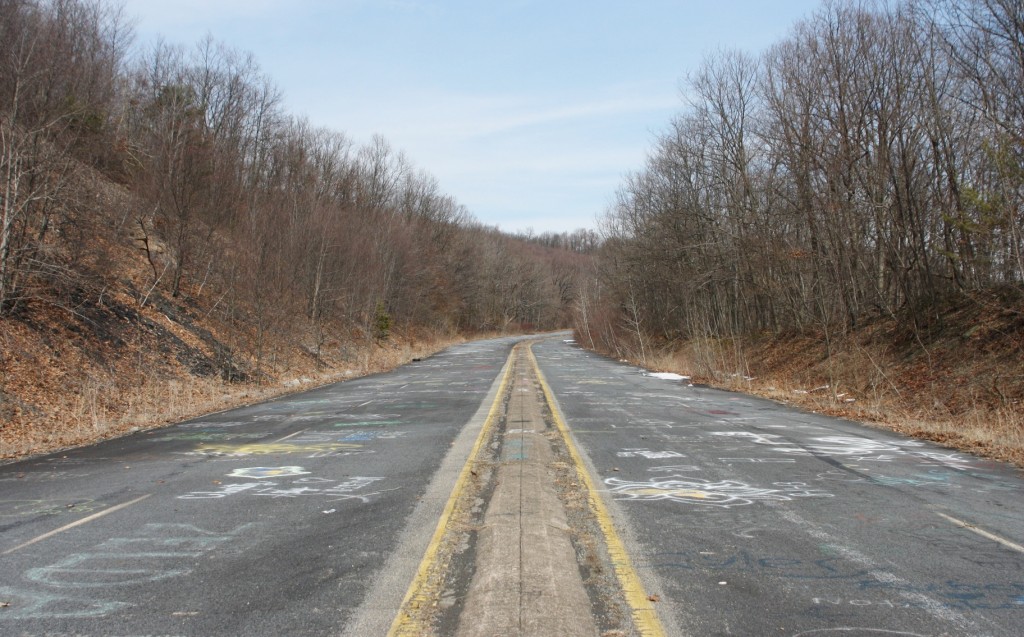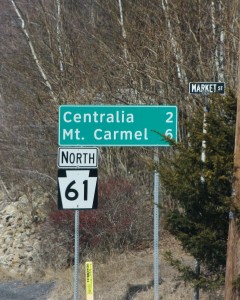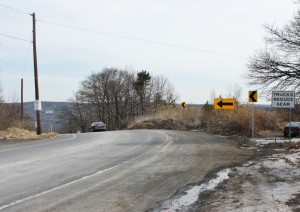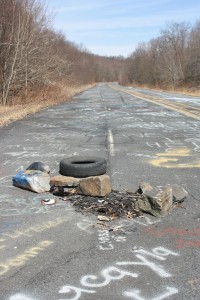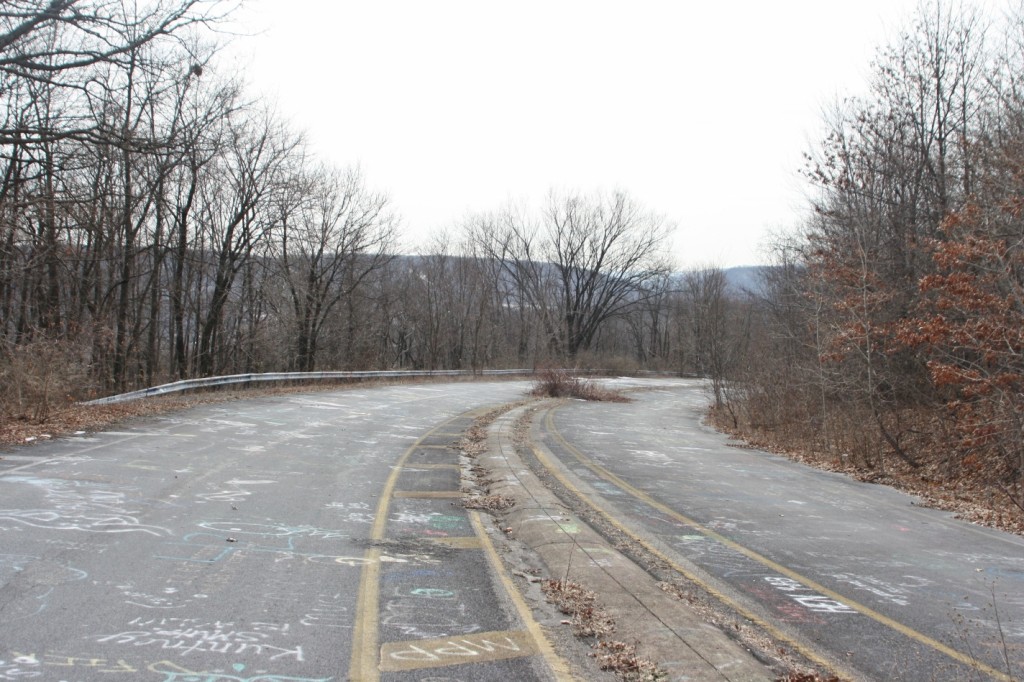With an old year giving way to a new one, it’s customary to reflect on the experiences of the past 12 months.
Those experiences include drives, and this year your humble author saw plenty of them. From the sunny coast of Georgia to the majestic mountains of British Columbia, 2014 delivered when it came to motoring.
But, as nice as the highways in those picturesque locales are, only one gets an end-of-year story devoted to it. And the ultra-worthy roadway of 2014 was chosen not for its views or its twists and turns, but for the fact it can’t be driven on.
Notoriety trumped scenery this year.
If the large picture and descriptive caption above somehow escaped your attention, I’m talking about the seriously unsexy Pennsylvania Route 61, or more specifically, the portion immediately south of the town of Centralia.
‘Town’ is a misleading word, because Centralia, once home to over 2,7000 hardy souls in the 1890s, currently contains about seven people. The ghost town the bustling community became still exists on some maps, but resides more in memories and in the pages of history books.
You see, Centralia, a once-prosperous coal-mining community nestled between rolling ridges about equal distances from Harrisburg and Scranton, had the bad luck of catching fire… gradually… underneath it.
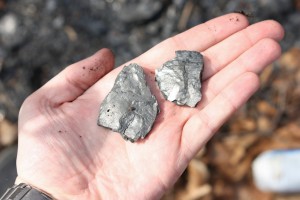
Shiny, pure anthracite coal is everywhere in Centralia – in ditches, on hillsides, and on fire deep below the town’s surface.
Perched atop an expansive subterranean spiderweb of high-grade (soot-free!) anthracite coal, the town remained unaware of its eventual fate for nearly two decades.
The ignition of the fire wasn’t an exciting event. Sometime on or around Memorial Day, 1962, a trash fire (or discarded ashes) at the town’s landfill ignited an exposed coal seam, starting an underground fire that even now is predicted burn another 250 years.
The townsfolk started to get wise to the growing danger in the late 1970s. Underground gas tanks began heating up, air quality plummeted due to carbon monoxide, and eventually – in 1981 – a young boy plunged through the street and into a FIERY CAVERN TO HELL while riding his bike.
He was just fine! Really!
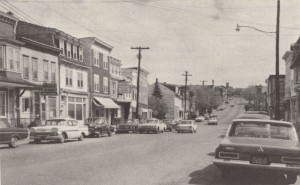
Centralia, seen here in 1962, was quintessential ‘small-town Rust-Belt America’ (photo by Robert Evans via offroaders.com)
Having just enjoyed a whole decade filled with high-profile pollution issues and man-made ecological disasters, the news media focused like a magnifying glass on little ol’ Centralia.
The town that no one outside of central Pennsylvania had ever heard of became a household word, which (like Love Canal, N.Y.) was now synonymous with a creeping industrial disaster. Cries for somebody to “do something!” grew in the wake of the media exposure, and in 1984 the U.S. Congress voted to approve $42 million for relocation efforts.
In the years that followed, residents of Centralia allowed themselves to be bought out and moved to the nearby communities of Mount Carmel, Ashland or Frackville.
A few holdouts (seven, according to estimates) remain to this day, even after the state of Pennsylvania invoked eminent domain in 1992 on all remaining homes in the town.
The state highway that ran through Centralia was also undermined by the constantly shifting coal fire, which would pop up near the surface in random areas only recede to a new locale.
Efforts to repair the damaged road surface were eventually abandoned, and a mile-long section of Route 61 immediately south of Centralia was closed off and crudely bypassed by a new Route 66 in 1993.
The abandoned stretch of highway is spooky even in the best of weather, and is something of a tourist attraction, drawing photographers and graffiti (both professional and lewd) to its cracked surface.
The highway and town, both bordered by deep, dark woods, are now ideal shooting locations for desolate music videos or post-apocalyptic films (the 2006 horror film Silent Hill was inspired by Centralia’s plight).
Just watch out for that massive, underground coal fire.
A visitor to Centralia will quickly notice that on the ground everywhere – on wooded slopes or next to roadways – is the substance that spawned the town and ultimately caused its demise. Coal. Shiny, flaky anthracite coal, which powered the blast furnaces, locomotives and steamships of America during its 19th Century industrial expansion.
Coal, still mined in small quantities nearby, which heated homes and public buildings in large numbers well into the 1980s and is still in limited use today.
The land that giveth also taketh away.
